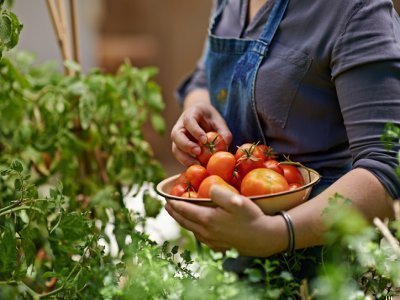Is Your Veggie Patch Poisoning You?
Your innocuous looking backyard veggie patch could actually be the source of toxic lead poisoning according to an extensive study led by Professor Mark Taylor at Macquarie University and published in the journal Environment International.1 The University’s "VegeSafe" program found that more than one-third of backyard gardens across Australia are likely to produce food with unsafe levels of lead and warn that the contamination carries major health risks.
Macquarie University researchers analysed 17,256 soil samples from more than 3,600 homes around the country making this study one of the most expansive studies ever conducted. After analysing all the samples they found that 35 per cent of veggie patches had at least one sample that exceeded the Australian guidelines for lead, which is 300 milligram per kilogram.
Interestingly, there were some marked differences between capital cities:
Sydney
- 31 per cent of vegetable gardens had unsafe levels
- The tolerable risk for children was exceeded in large parts of inner Sydney suburbs, followed by Leichhardt then Marrickville, Ryde, Burwood and Strathfield
- Liverpool, Merrylands and Canada Bay also had soil toxicity above the safe level
Melbourne
- 19 per cent of vegetable gardens had risky levels of contamination
- The areas of greatest concern were inner city suburbs Brunswick and Coburg as well as Stonnington East, Port Phillip and Dandenong
Brisbane
- 19 per cent of vegetable gardens had risky levels of contamination
- Holland Park and Yeronga had high levels of contamination
Sources Of Lead
Lead is a naturally occurring heavy metal, often used in industry. It gets dispersed in the environment through contamination of water, dust, soil, and some paints. Then it gets into our bodies when we breathe in the lead dust or fumes in the air or if we eat food or drink water that contains lead.
There are several factors which affect the amount of lead in our soil:
- Older homes - most houses built before 1970 contain lead-based paint
- Contamination from industries that produce or use lead
- Heavy traffic and exhaust from lead petrol (this has decreased with the use of unleaded petrol.)
This means that older houses which are painted with leaded paint and that are in areas of heavy traffic are more likely to have high readings. Inner city locations with heavy traffic and old homes are most susceptible.
We know that lead-based paint on the outside of older homes deteriorate over time and can be one of the primary causes of lead in backyard soils.
Serious Health Risks
Homes with contaminated soil with high levels of lead carry major health risks. Lead can build up in our bodies over time with serious impacts on our health.
Professor Mark Taylor said lead's side effects are numerous, but particularly dangerous for children. "The effects would include developmental delays, ADHD behaviours, increased irritability, and poorer executive functioning."2 Adults can also be adversely affected with increased blood pressure and hypertension.
As far as your veggie patch goes, green leafy vegetables, like lettuce and herbs, take up a lot of minerals from the soil and pose the greatest risk. Root vegetables and fruit trees are still affected but pose less of a risk.
How To Reduce The Risks Of Your Veggie Garden
By no means are we suggesting that you shouldn’t have a veggie patch or enjoy your own home grown fruit and vegetables. If you think your soil may be affected, Professor Taylor recommended these steps to minimise or remove any risks:
- Use raised garden beds with fresh, clean soil
- Use compost and mulch – they help to reduce the amount of accessible lead in the soil
- Avoid leafy green vegetables which absorb more lead from the soil. If you do grow them, these plants are not recommended for consumption by young children or pregnant women when grown in lead contaminated gardens.
- Avoid using nature strips where lead levels may be higher due to being near the road
- Wash all fruit and vegetable grown at home thoroughly to remove all traces of soil
- Take off your shoes before going inside
- Don’t let pets into the vegetable garden as they can transport contaminated soil inside
- Create a play area for your children away from the veggie patch – in a raised bed and with fresh, clean soil
If you are concerned that your soil may be affected by lead, you can send a sample to VegeSafe at Macquarie University.
References









